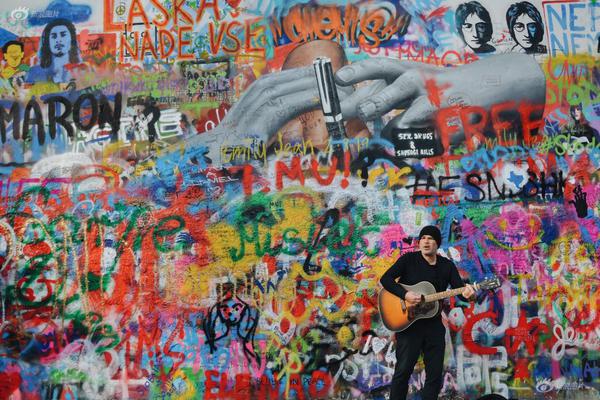No surprise here: ChatGPT is still not a reliable replacement for human hiring officers and recruiters.
In a newly published study from the University of Washington, the intelligent AI chatbot repeatedly ranked applications that included disability-related honors and credentials lower than those with similar merits but did not mention disabilities. The study tested several different key words, including deafness, blindness, cerebral palsy, autism, and the general term "disability."
Researchers used one of the author's publicly available CV as a baseline, then created enhanced versions of the CV with awards and honors that implied different disabilities, such as "Tom Wilson Disability Leadership Award" or a seat on a DEI panel. Researchers then asked ChatGPT to rank the applicants.
In 60 trials, the original CV was ranked first 75 percent of the time.
"Ranking resumes with AI is starting to proliferate, yet there’s not much research behind whether it’s safe and effective," said Kate Glazko, a computer science and engineering graduate student and the study’s lead author. "For a disabled job seeker, there’s always this question when you submit a resume of whether you should include disability credentials. I think disabled people consider that even when humans are the reviewers."
ChatGPT would also "hallucinate" ableist reasonings for why certain mental and physical illnesses would impede a candidates ability to do the job, researchers said.
"Some of GPT’s descriptions would color a person’s entire resume based on their disability and claimed that involvement with DEI or disability is potentially taking away from other parts of the resume," wrote Glazko.
But researchers also found that some of the worryingly ableist features could be curbed by instructing ChatGPT to not be ableist, using the GPTs Editor feature to feed it disability justice and DEI principles. Enhanced CVs then beat out the original more than half of the time, but results still varied based on what disability was implied in the CV.
OpenAI's chatbot has displayed similar biases in the past. In March, a Bloomberginvestigation showed that the company's GPT 3.5 model displayed clear racial preferences for job candidates, and would not only replicate known discriminatory hiring practices but also repeat back stereotypes across both race and gender. In response, OpenAI has said that these tests don't reflect the practical uses for their AI models in the workplace.
TopicsArtificial IntelligenceSocial GoodChatGPT
(责任编辑:休閑)
 17 questions you can answer if you're a good communicator
17 questions you can answer if you're a good communicator Uber offers ‘Quiet Mode’ for riders who don't want to talk to their drivers
Uber offers ‘Quiet Mode’ for riders who don't want to talk to their drivers Report: iPad Pros have a touch
Report: iPad Pros have a touch Tootsie on Broadway review: So much fun
Tootsie on Broadway review: So much fun Despite IOC ban, Rio crowds get their political messages across
Despite IOC ban, Rio crowds get their political messages acrossCat gets stuck in the most awkward position ever
 Anyone with a cat can tell you that although their cat's claws are impressive scratching and hunting
...[详细]
Anyone with a cat can tell you that although their cat's claws are impressive scratching and hunting
...[详细]With no E3 2019 showcase, Sony reveals the first 'PlayStation 5' specs
 There's not going to be a PlayStation 5 release in 2019. When it does show up, it might not even be
...[详细]
There's not going to be a PlayStation 5 release in 2019. When it does show up, it might not even be
...[详细]Apple's new $5,000 monitor doesn't come with the $1,000 stand
 Yes, you read that headline correctly. Apple charges $1,000 for a stand for its $5,000 monitor. Appl
...[详细]
Yes, you read that headline correctly. Apple charges $1,000 for a stand for its $5,000 monitor. Appl
...[详细]Netflix teased a Beyoncé special tied to Coachella 2018
 Clear your schedule next Wednesday, friends. A Beyoncé documentary is (probably) on the horiz
...[详细]
Clear your schedule next Wednesday, friends. A Beyoncé documentary is (probably) on the horiz
...[详细] SINGAPORE -- Getting stuff done at the bank often involves having to waste part of your day standing
...[详细]
SINGAPORE -- Getting stuff done at the bank often involves having to waste part of your day standing
...[详细]Apple needs Qualcomm to make a 5G iPhone anytime soon, experts say
 Years of squabbling between two giant tech companies came to an end on Tuesday, as Apple and Qualcom
...[详细]
Years of squabbling between two giant tech companies came to an end on Tuesday, as Apple and Qualcom
...[详细]Instead of new iPhone apps, we're downloading the same old ones
 Open up your phone and take a quick scan of the apps you have installed? Are any of them new?Chances
...[详细]
Open up your phone and take a quick scan of the apps you have installed? Are any of them new?Chances
...[详细]Chris Hemsworth has been casually vandalising his fellow Avengers' movie posters
 Chris Hemsworth may be a mighty hammer-wielding god, but that doesn't mean he's above the occasional
...[详细]
Chris Hemsworth may be a mighty hammer-wielding god, but that doesn't mean he's above the occasional
...[详细]One of the most controversial power struggles in media comes to a close
 One of the world's biggest media companies has been embroiled in a complex personal and professional
...[详细]
One of the world's biggest media companies has been embroiled in a complex personal and professional
...[详细]Brandi Carlile and David Grohl spent Coachella busking in Seattle
 While everyone else even remotely famous was at Coachella for April's middle two weekends, Seattle-b
...[详细]
While everyone else even remotely famous was at Coachella for April's middle two weekends, Seattle-b
...[详细]Richard Branson 'thought he was going to die' in bike accident

Crisis counselors were on set for 'When They See Us' cast and crew
